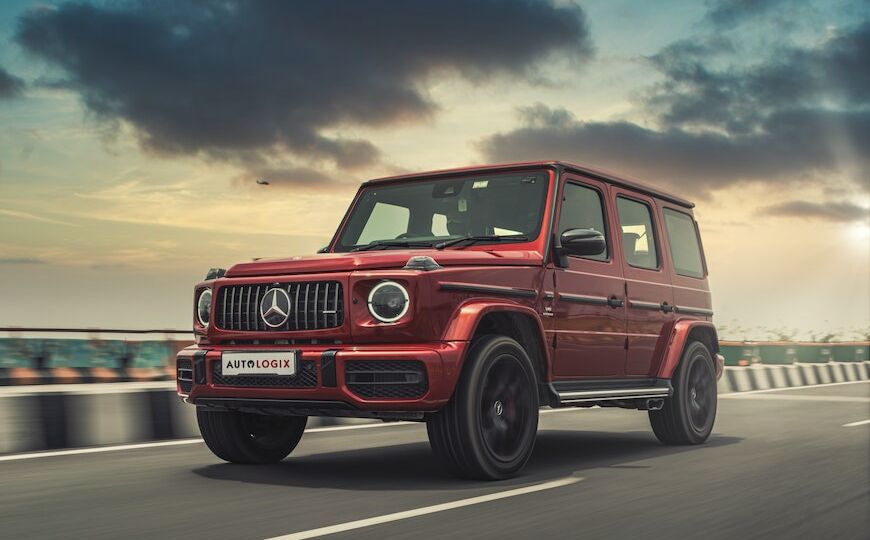
If you’re researching window tint for your vehicle and wondering whether ceramic tint is worth the higher price, you’re not alone. At OCDetailing, it’s one of the most common questions we get from customers.
Let’s break it down in simple, real-world terms—so you can make the best decision for your vehicle, your comfort, and your wallet.
What’s the Difference Between Window Film Types?
Not all window tint is created equal. And in our area, most tint shops are still using low-grade dyed-based films—even when they advertise it as “ceramic.” Here’s how the common types of film compare:
Dyed Film (Standard Tint)
This is the cheapest option—and it performs like it. It reduces glare and gives the car a darker look, but it offers minimal heat rejection and poor UV protection. Worse, dyed films are known to fade, bubble, and turn purple over time.
Metallized Film
Slightly better in heat rejection and strength, metallized films include tiny metal particles in the film. However, these metals can interfere with your GPS, Bluetooth, cell signal, and radio—especially in modern vehicles that rely on tech.
Carbon Film
Carbon tint is a major upgrade over dyed or metallized film. It rejects more heat, won’t interfere with electronics, and doesn’t fade over time. At OCDetailing, even our entry-level tint is a premium-grade carbon-based film, not dyed. That’s a huge distinction between us and many shops in the area.
Ceramic Film
Ceramic window tint is the gold standard. It uses nano-ceramic particles that block more infrared heat than any other film—without using dyes or metals. That means better comfort, longer film life, no signal interference, and unmatched clarity.
But is it worth the extra cost? Let’s look deeper.
| Feature | Dyed Film (Standard) | Metallized Film | Carbon Film (OCDetailing Standard) | Ceramic Film (OCDetailing Premium) |
|---|---|---|---|---|
| Heat Rejection | Low | Moderate | High | Very High (80–90% IR heat blocked) |
| UV Protection | Basic | Good | Excellent (up to 99%) | Excellent (99%+) |
| Signal Interference | None | Yes – may block GPS/Bluetooth | None | None |
| Clarity & Visibility | Moderate | Reflective | Clear | Ultra Clear – even in darker shades |
| Fade Resistance | Poor – turns purple | Fair | Great | Exceptional – won’t fade or bubble |
| Durability | Short-Term | Moderate | Long-Lasting | Lifetime Performance |
| Price | $ | $$ | $$$ (Your Value Option) | $$$$ (Top Performance Package) |
What You Actually Get with Ceramic Window Tint
✅ Superior Heat Rejection
Ceramic tint blocks up to 80–90% of infrared heat, helping your car stay noticeably cooler in the summer—whether you’re parked or driving. You’ll use your A/C less, which improves comfort, efficiency, and even battery range in electric vehicles.
✅ 99% UV Protection
Ceramic film protects your skin and your interior by blocking 99% of harmful UV rays. That means less sun damage to your seats, dashboard, and trim—and added protection for your passengers.
✅ No Signal Disruption
Unlike metallized films, ceramic tint allows your phone, GPS, Bluetooth, and satellite radio to work with zero interference.
✅ Crystal-Clear Visibility
Even in darker shades, ceramic tint provides a clearer view—especially at night. You get the privacy you want without sacrificing safety.
✅ Long-Term Durability
Ceramic films are engineered to last. They resist fading, bubbling, and discoloration. When professionally installed, they often come with a lifetime warranty.
Why Some Shops Offer “Fake Ceramic”
Here’s a common trap: Many local shops advertise “ceramic tint” but actually use dyed-based ceramic blends. These offer poor heat rejection, fade over time, and don’t hold up under real-world conditions. They’re cheaper for a reason—and customers often don’t realize the difference until it’s too late.
At OCDetailing, we only install carbon and true nano-ceramic films. No gimmicks. No low-grade blends. You get what you pay for—and it shows.
Is Ceramic Tint Worth the Price?
If you want real performance, year-round comfort, and film that actually lasts, ceramic tint is absolutely worth the extra investment. Especially in hot climates like North Carolina, ceramic film makes a noticeable difference in both daily driving and long-term protection.
When you consider the added heat rejection, UV protection, clarity, and durability—it’s not just a better tint. It’s a smarter decision.
Professional Installation Makes All the Difference
No matter which film you choose, professional installation is critical. At OCDetailing, our work is done in a climate-controlled bay using precise, dust-free techniques. Our installers are trained, certified, and detail-obsessed.
We don’t just slap film on a window. We walk you through your options, explain the performance difference, and ensure a flawless install backed by a warranty.
Final Thoughts
If you’re asking, “Is ceramic window tint worth it?”—the answer comes down to what you value most: comfort, performance, longevity, or simply peace of mind.
At OCDetailing, we believe you shouldn’t have to settle. That’s why we only use premium films and educate you every step of the way. Visit our shop in Lumberton, NC to see the difference for yourself—or contact us today for a personalized quote.